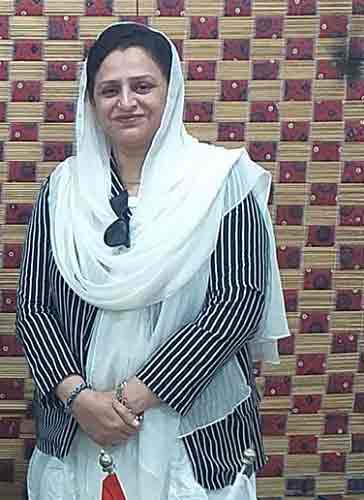Rizwana Memon highlights gender disparity in judicial system

Karachi: Advocate Rizwana Memon, a prominent member of the Pakistan People’s Party (PPP), has expressed concern over the significant gender disparity in Pakistan’s legal profession.
Commenting on the findings of a recent report, which revealed that out of 230,879 lawyers enrolled across provincial bars, 198,100 are men while only around 40,000 are women, she called for urgent reforms to address the systemic barriers faced by women in the field.
“While we have made some progress, these numbers highlight the deep-rooted challenges women continue to face in entering and thriving in the legal profession,” Advocate Memon said. “This disparity not only reflects gender inequality but also limits the diverse perspectives essential for delivering justice.”
Advocate Memon underscored the historical and cultural hurdles that have contributed to this gap. “For decades, the legal profession has been male-dominated due to societal norms, limited mentorship opportunities, and the structural biases women face,” she explained. “This is especially true in rural areas, where women’s participation in professional fields, including law, remains minimal.”
She highlighted the challenges women lawyers encounter, including harassment, lack of representation in bar councils, and limited access to leadership roles. Despite these barriers, the growing number of female lawyers and judges demonstrates that women are determined to carve out their place in the justice system.
As a member of the PPP, which has historically championed progressive policies, Advocate Memon reiterated her party’s commitment to gender equality. She called for affirmative action, scholarships for female law students, and gender-sensitive policies within bar councils to ensure an inclusive environment.
“Mentorship programs, anti-harassment measures, and equitable opportunities for case distribution and promotions are critical to bridging the gap,” she added.
While acknowledging the challenges, Advocate Memon celebrated milestones like the appointment of Justice Ayesha Malik as the first female Supreme Court judge in 2022. “These achievements are a testament to the capability of women and their importance in shaping a balanced justice system,” she said.
However, she emphasized that much work remains to be done. “The representation of women in leadership roles across bar associations and the judiciary is essential not just for gender equality but also for enhancing the quality of justice delivered in our country.”
Advocate Memon urged stakeholders, including legal institutions, political parties, and civil society, to work collaboratively toward creating a more inclusive justice system. “Empowering women in law is not just a step toward gender equality; it is vital for strengthening our democracy and ensuring justice for all,” she remarked.





